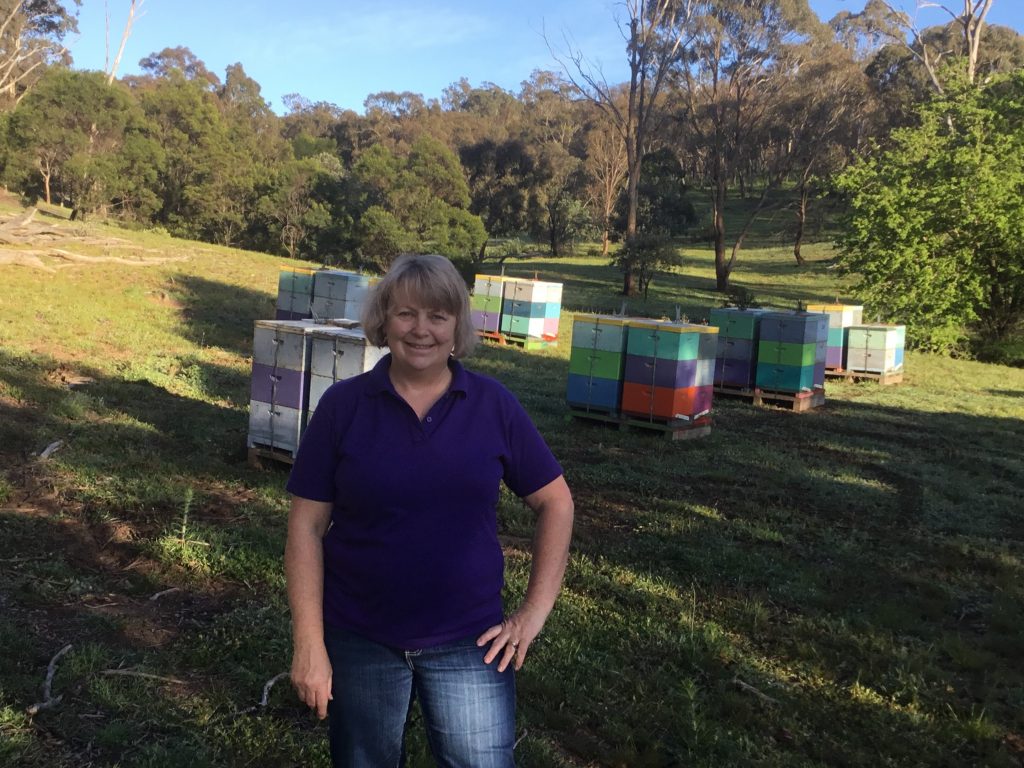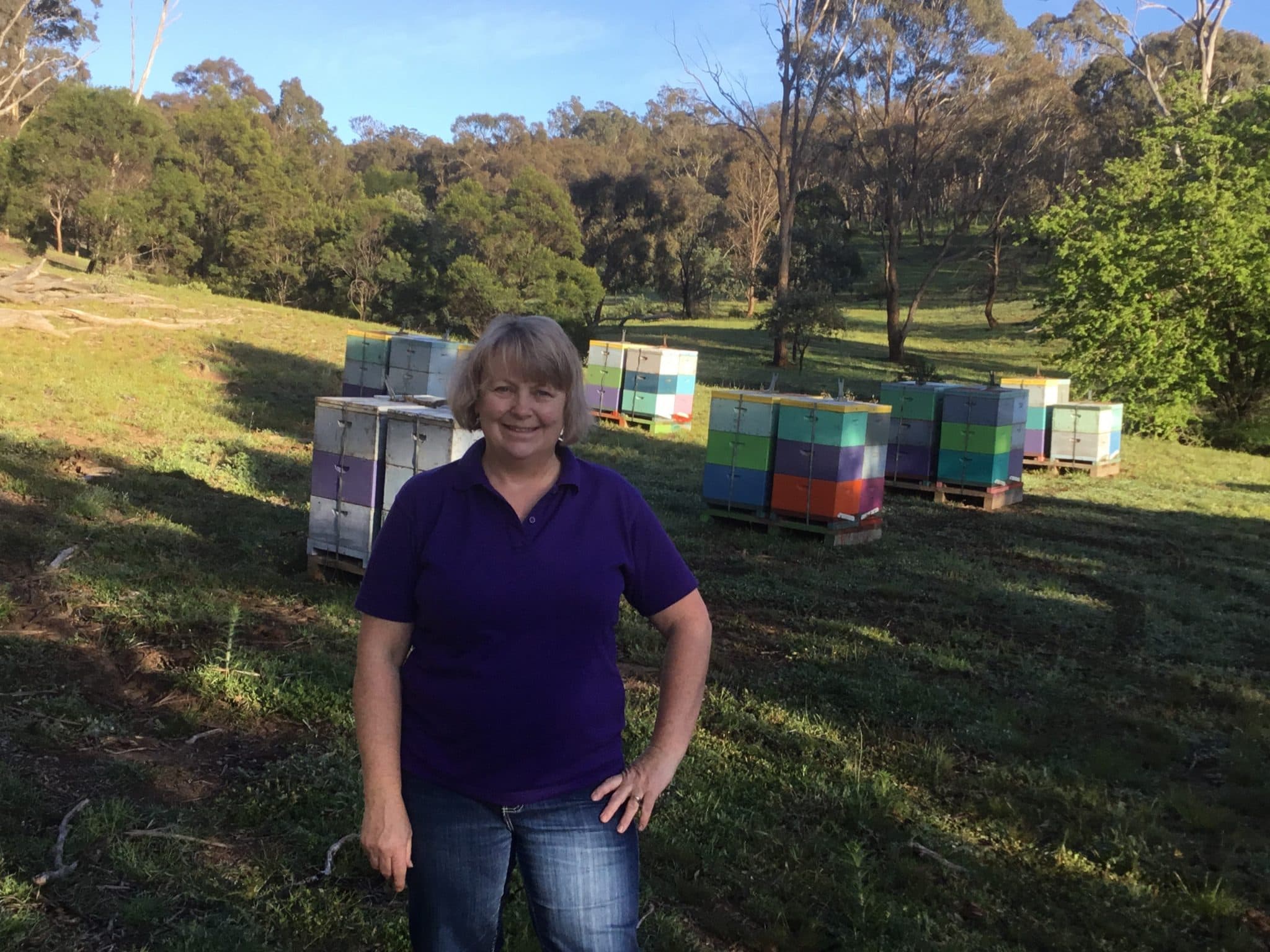
The expression “runs in her blood” certainly applies to Therese and beekeeping. Therese is a fourth-generation beekeeper, as is her husband, Laurie. With their children now involved in the honey bee industry, beekeeping is undoubtedly a family affair for the Kershaws.
Therese is a dedicated supporter of the Australian honey bee industry, volunteering countless hours in support of the beekeeping community. Just recently she has helped the industry examine the impact of the 2019-20 bushfires on local beekeepers and the pollination industry, developing a six-point action plan providing a roadmap to rebuild the industry and its contribution to Australian agriculture.
Her extensive list of roles and volunteer positions includes Australian Honey Bee Industry Council (AHBIC) Executive Council Member, and Sponsorship & Trade Show Coordinator for both the NSW Apiarist Association (NSWAA) and the Australian Bee congress; to name a few.
“Bees have always been part of my life and I am passionate about the industry, it’s a small industry with a big impact on a lot of other industries. This passion is what drives to me to volunteer many hours of my time to support the industry,” said Therese.
Therese is a firm believer of the power of face-to-face in order to keep the industry connected, a challenging conundrum in the wake of COVID-19, and is passionate about using her business relations and sponsorship expertise to provide opportunities for beekeepers to come together.
“Beekeeping can be quite isolating, and it is vital for the mental health and wellness of beekeepers to have the opportunity to communicate face to face,” said Therese.
Drought, fire, flood and now COVID-19 have all posed serious threats to the Australian honey bee industry. Therese’s passion for the industry and its members has led her to take on a lead role in supporting her local branch to get through it all together.










